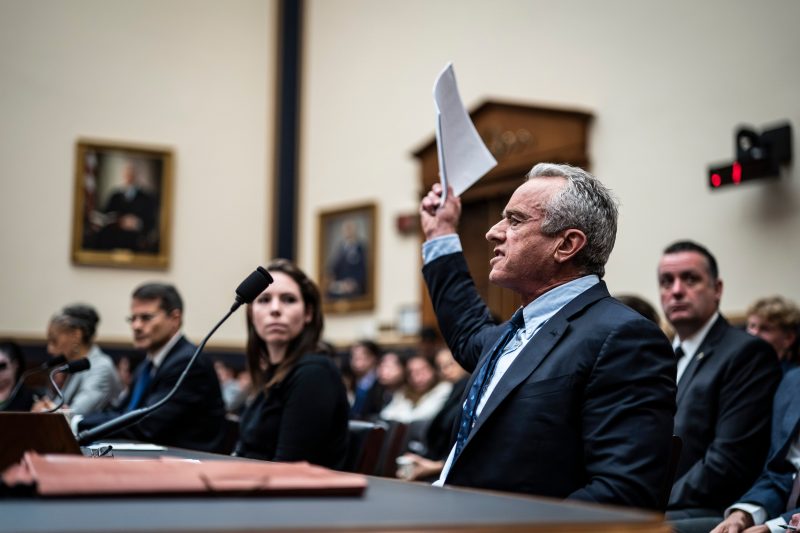Robert F. Kennedy Jr. appeared on cable news last week to argue for the robustness of his candidacy for the 2024 Democratic presidential nomination.
“My polling numbers are better than [Florida Gov.] Ron DeSantis or any other candidate except for [President] Biden or [Donald] Trump,” he argued.
It’s an interesting argument to make. It’s also not true, not important as a metric and, if anything, a reminder of how likely Trump and Biden are to be nominated again.
Let’s start by demonstrating the first error in Kennedy’s claim. He is not, in fact, outpolling DeSantis. In FiveThirtyEight’s average of presidential polling, Kennedy lands at about 12 percent and DeSantis at 13 percent.
At first glance, one might think that Kennedy is referring to favorability ratings, a measure of how people view candidates in the abstract. It is true that Kennedy outperforms many other presidential candidates when looking at net favorability (those who view him positively minus those who view him negatively). But that’s really only because he’s viewed so positively among Republicans, while most candidates for one party’s nomination are viewed negatively by members of the other party.
The cable channel giving him the opportunity to promote his bid for the nomination, by the way, was Fox News.
That he then pointed to Trump and Biden as the only ones surpassing him cements the idea that he was talking about primary polls. But while it might make sense for Kennedy to throw poll results from the Republican and Democratic nominating contests into one big pot, it doesn’t make sense as an actual measure of support.
For example, a July Suffolk University poll conducted for USA Today found Sen. Sherrod Brown (D-Ohio) getting 48 percent of the vote, just under the 50 percent Trump was getting in FiveThirtyEight’s average at the time. Does that mean that Brown and Trump are running even? No, of course not. Brown’s running for reelection to the Senate and Trump is running for president. They’re two different races with two different voter pools. There’s no value in comparing them.
Well, you might say, both DeSantis and Kennedy are running for president. That’s true, but the polling at issue measures the party primaries, not the presidency. They are two races with two separate voter pools.
They are also two different candidate pools. Kennedy is the only other candidate in the Democratic primary who earns enough support to be included in FiveThirtyEight’s average. He’s consolidating something like 1 in 8 votes, but that’s in part because there isn’t much competition. If you’re a Democratic primary voter who doesn’t like Biden, you don’t have many other options from which to choose. If you’re a Republican who doesn’t like Trump, on the other hand, you have a veritable smorgasbord.
That DeSantis is pulling in just a bit more support in the GOP field than Kennedy does in the Democratic one is more of a testament to DeSantis’s strength than it might seem. DeSantis gets that level of support even against tougher competition.
There’s another reason that Kennedy and DeSantis are near the same levels of support, by the way: DeSantis’s collapse in support over the course of the year.
Even if you think there’s utility in comparing support in the Republican and Democratic primary fields for some reason, Kennedy is near DeSantis because the Florida governor has fallen to his level. It’s like Lichtenstein’s entry for the 100-meter dash in the Olympics tying for fifth because one of the American runners snapped his hamstring at the 80-meter mark and crawled the rest of the way. Congrats?
The thrust of Kennedy’s recitation of his poll numbers was that he deserved more respect than he was being granted by Democratic leaders and the news media. This is the perennial complaint of the underperforming candidate: If only the media would give him attention, he’d pass Biden in a heartbeat!
The media gave him attention, quite a bit of it. He gained ground not with Democrats but with Republicans. The interesting question, then, is not how he compares with DeSantis while running as a Democrat. It’s how he might compare if running as a Republican.








